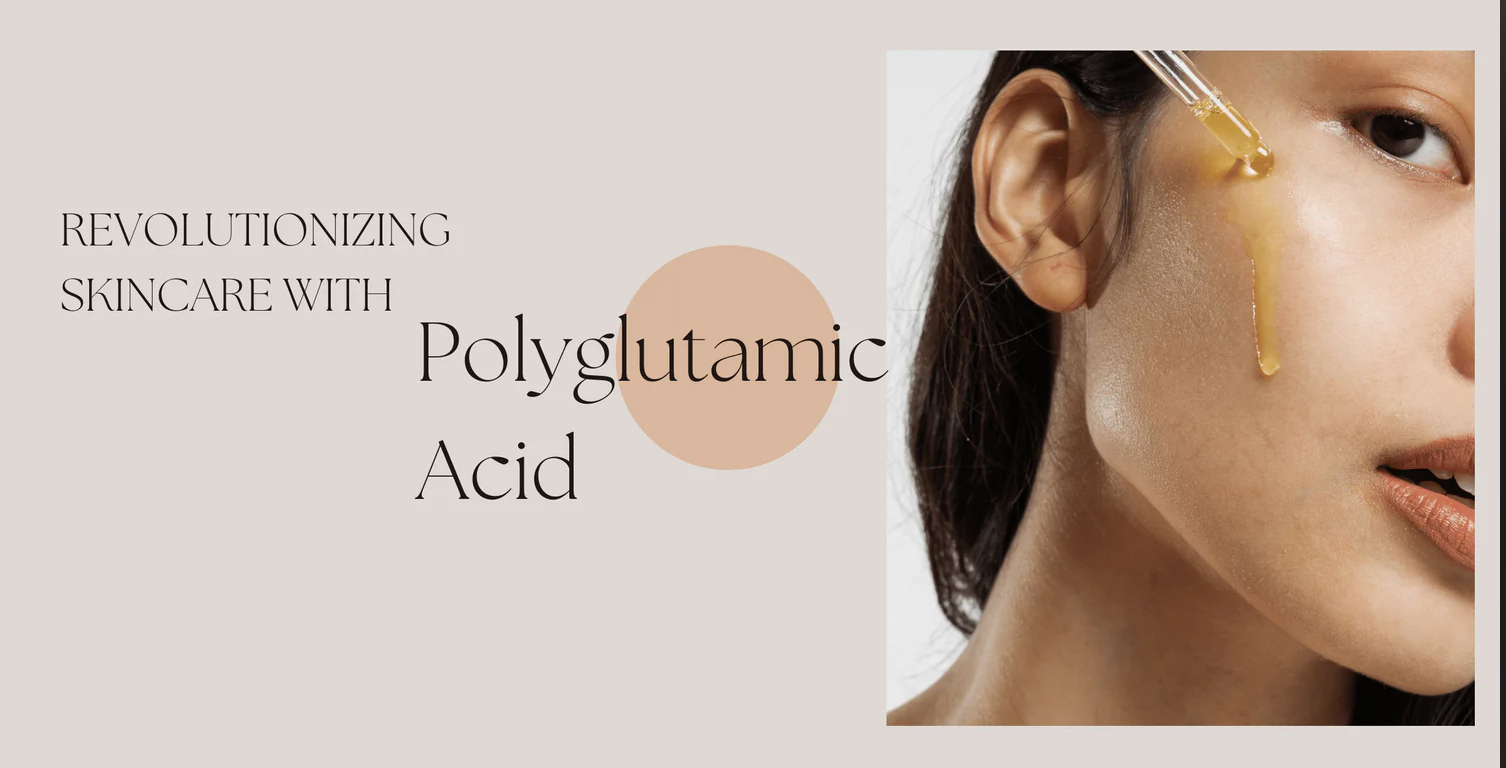Polyglutamic Acid (PGA) is a biopolymer made up of glutamic acid units, which are amino acids that are commonly found in proteins. Polyglutamic Acid is a water-soluble, biodegradable substance and is mainly produced by bacteria, especially Bacillus subtilis. It can exist in different forms, such as linear or cyclic, depending on its structure.
Key Properties:
- Composition: It is composed of repeated glutamic acid units, which are linked by peptide bonds.
- Molecular Weight: It can vary widely depending on the degree of polymerization (the number of glutamic acid units in the chain), typically ranging from a few thousand to hundreds of thousands of Daltons.
- Solubility: It is highly soluble in water.
- Charge: Due to the carboxyl groups of glutamic acid, Polyglutamic Acid carries a negative charge in a neutral to alkaline pH environment.

Biological and Industrial Applications:
1.Cosmetics and Skincare:
- Polyglutamic Acid is known for its moisture retention properties, making it a valuable ingredient in skincare products like moisturizers, serums, and anti-aging creams.
- It is used to improve skin hydration and elasticity.
2.Food Industry:
- Polyglutamic acid is used as a food additive, particularly as a thickener and stabilizer.
- It can also be used to enhance the texture and mouthfeel of products like sauces, soups, and dressings.
3.Agriculture:
- Polyglutamic Acid has potential applications in controlled release fertilizers and soil conditioners. It can enhance water retention in soil and improve crop yields.
4.Biomedical Applications:
- Due to its biocompatibility and biodegradability, Polyglutamic Acid has been explored for drug delivery systems and as a scaffold material in tissue engineering.
- It can form hydrogels, which can be used for controlled release of drugs or to treat wounds.

Synthesis:
Polyglutamic acid can be synthesized by bacterial fermentation, where Bacillus subtilis and other microorganisms are cultured to produce the polymer. It can also be chemically synthesized by polymerizing glutamic acid or its derivatives.
Environmental Impact:
- Biodegradability: Since it is a natural polymer, PGA is biodegradable, which makes it an environmentally friendly alternative to synthetic polymers in various applications.
In summary, polyglutamic acid is a versatile and valuable polymer with applications ranging from skincare to agriculture, owing to its hydration properties, biocompatibility, and biodegradability.
